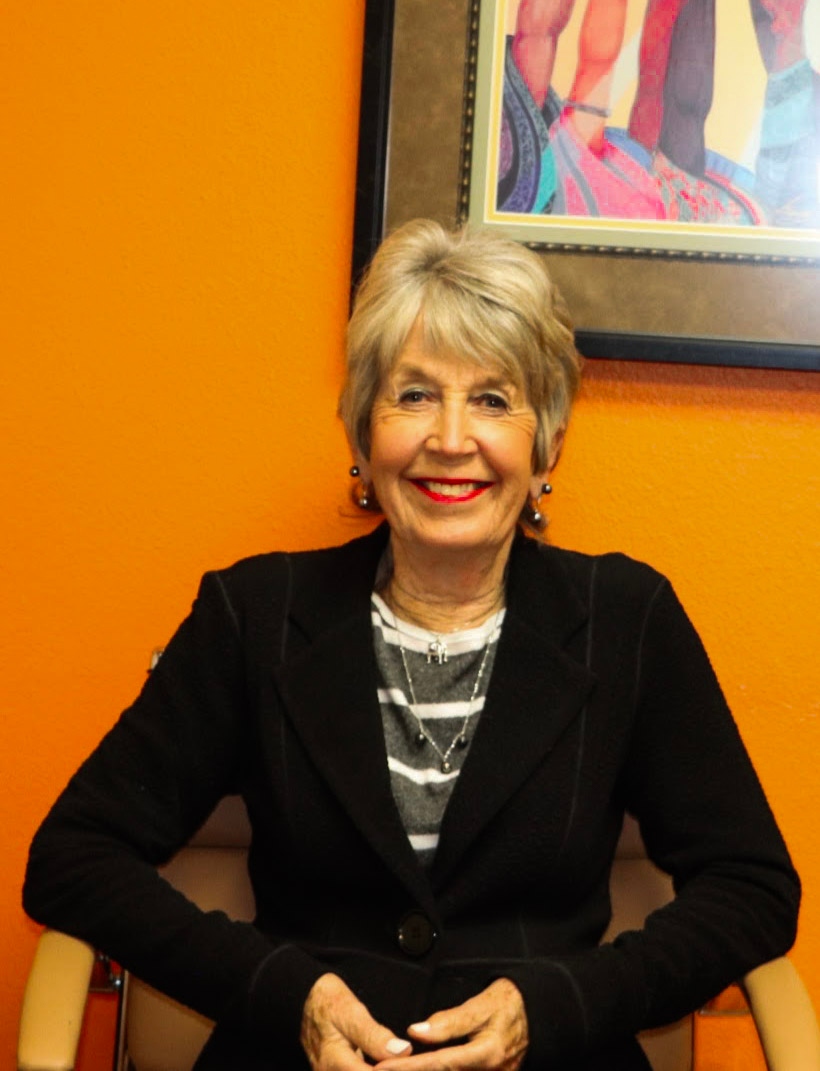Barbara Porter has spent nearly four decades educating the children of Austin.
By Barbara Porter, Photo by Karla Dunda
I was fortunate to grow up in a loving and comfortable family in England. My father was the managing director at a textile mill, my mother a homemaker. I had one sister who was seven years older than I, and she was in boarding school for much of my childhood. I vividly recall visiting her at school, around the age of 10, and announcing that the place hadn’t changed since the Brontë Sisters were there over a hundred years before (a true fact), and that I’d run away if I were sent there. My parents wisely did not consider this school for me.
Growing up in the ’60s, I was thrilled with the changes that were coming to England, particularly the new freedom that women were embracing. My skirts were as short as everyone else’s. I taught in London for my first year. It was an underprivileged multicultural school with horrible problems, quite a contrast to the schools I had known. There were 38 7-year-olds and me in that first classroom. It was one of the toughest experiences of my life and also one of the most rewarding. I knew if I could be successful teaching there, I could make a difference and teach anywhere. The desire to travel brought me to the U.S. (to Indianapolis, to be exact). It was a lovely Episcopal school, totally diverse and quite a contrast to the rest of the city.
Life in Austin
Ten years later I found myself in Austin. Texas was not exactly where I’d wanted to be, but boy, was I glad it was Austin. I loved it from the beginning. Moving from the “Swinging Sixties” of London to “Keep Austin Weird” fit me to a tee!
In 1985, I was headmistress at the old Resurrection Episcopal School, just off Burnet Road. The Bishop decided to close that school, but the parents and I knew we had the makings of a great institution.
St. Francis School was now a reality. We chose the name to reflect the school’s religious origins at Resurrection and the values that St. Francis embodied as a human, everything we wanted to see in our students. It didn’t hurt that he loved animals, as do I.
We had almost no money and no building.
We started with close to 50 families the first year, could barely pay our great teachers. For years, the only employees were the teachers and me. Parent volunteers did everything else. We found a burned-out office building on Huntland Drive, near the old Highland Mall. Our school was built on hard work, love of community and willingness to share time, talent and treasure. A parent who was an architect volunteered to draw plans, get city permits and supervise construction. Prosperity Bank took a chance and made the mortgage loan; a grandparent took a bigger chance and loaned her retirement funds for the down payment. Our architect found a contractor who did all the construction over the summer.
I kept urging our parents and teachers to have faith and stick with us through this crisis, and most of them did. We opened on time with 122 students. Today, St. Francis has 380 students and a waiting list. We have doubled our facilities. We have a faculty of close to 60, and we still run a lean administration.
From the beginning, my vision was to offer small classes, a diverse student body and to meet the needs of every child. We keep our tuition low and maintain a large scholarship budget, serving a very diverse student body: gifted and talented, as well as a variety of learning differences and exceptionalities. We value interpersonal skills such as tolerance and acceptance as much as the curriculum to prepare them for high school.

I didn’t build St. Francis alone. The deep commitment of so many parents and talented teachers has been essential. I claim only to have been a key part of that effort.
“I’m in Charge”
I have always tried to listen closely and chat reasonably with any student that I interact with. I have found that this simple policy works. Lessons about treating one another with kindness and respect are as important as developing academic skills. I learned many of these lessons from talking and observing my father back in Lancashire, England. He never lost his cool, a lesson I remembered and used often during the tricky Covid time. He liked and respected everyone and always treated people with genuine caring, which I have embraced all my life.
“Treat kings like commoners, and commoners like kings,” was his basic philosophy. Even in a very socially conscious country like England, all people were equal in my dad’s world.
Life with COVID-19
As I write this, it is almost two years to the day since our world stopped. The parents and students were magnificent in their support of this new normal. We adjusted, we tackled, we worked as a team and we did it!
After 37 years as head of school at St. Francis, I am retiring on June 30. As I look back on all the generations of Austin children who went from surviving in school to thriving in school, I am so proud to have been a part of this. St. Francis turned out to be a lifetime project, and what a journey it has been. Thank you, Austin.


